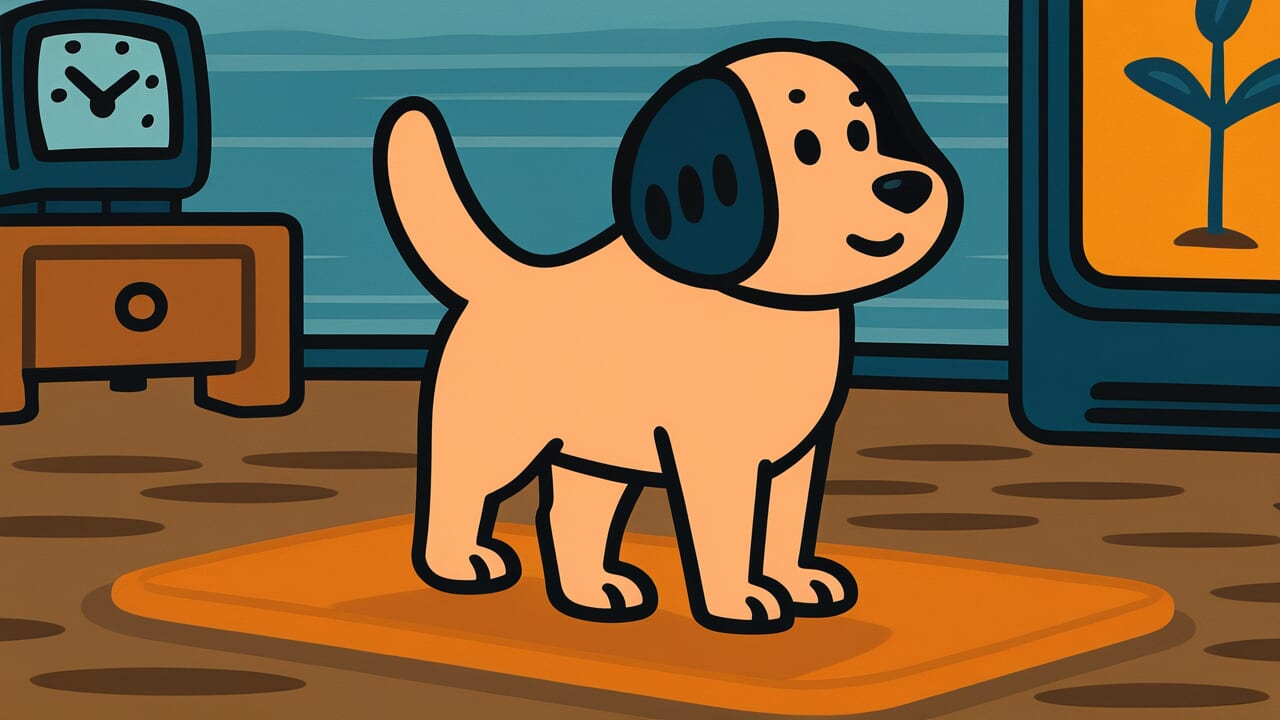How to Read “every dog has his day”
Every dog has his day
[EV-ree dog haz hiz day]
All words are common and easy to pronounce.
Meaning of “every dog has his day”
Simply put, this proverb means that everyone will eventually have their moment of success or recognition, no matter how ordinary they seem.
The saying compares people to dogs in a clever way. Dogs were often seen as common, everyday animals. Yet even the most ordinary dog might have one special moment. Maybe it catches a thief or finds something valuable. The proverb suggests that all people, like all dogs, will get their chance to shine.
We use this saying when someone finally gets the recognition they deserve. It might be the quiet student who wins the science fair. Or the employee who never speaks up but saves the company money. The proverb reminds us that success comes to everyone eventually. You just need to wait for your turn.
This wisdom teaches us to be patient with ourselves and others. Some people succeed early in life. Others take longer to find their moment. The proverb says both paths are normal. It also suggests we should treat everyone with respect. That person you overlook today might surprise you tomorrow.
Origin and Etymology
The exact origin of this proverb is unknown, but it appears in English writing from the 1500s. Early versions used slightly different words but carried the same meaning. The saying became popular during a time when social classes were very rigid.
During this historical period, most people were born into their social position for life. Peasants stayed peasants, and nobles stayed nobles. Yet people still noticed that fortune could change quickly. A poor person might find treasure or gain a king’s favor. This proverb captured that hope for unexpected good luck.
The saying spread through everyday speech before appearing in books and plays. People found comfort in the idea that everyone deserves success. Over time, the exact wording became fixed as we know it today. The proverb traveled to other English-speaking countries and remained popular for centuries.
Interesting Facts
The word “day” in this proverb doesn’t mean a 24-hour period. It means a time of success or glory. This usage appears in phrases like “in my day” or “the day of reckoning.” The proverb uses “his” even though it applies to everyone, following old English grammar rules where “his” was used for both men and women in general statements.
Usage Examples
- Coworker to colleague: “Don’t worry about him getting that promotion over you – every dog has his day.”
- Coach to benched player: “Keep training hard and stay ready – every dog has his day.”
Universal Wisdom
This proverb speaks to a fundamental human need for hope and fairness. Throughout history, people have observed that life distributes success unevenly. Some are born into wealth and opportunity. Others struggle for years without recognition. Yet humans have also noticed that fortune can shift unexpectedly. The overlooked person sometimes becomes the hero. This pattern repeats across all societies and time periods.
The saying reveals our deep desire to believe in cosmic justice. We want to think that merit eventually gets rewarded. This belief helps people endure difficult times and unfair treatment. It also reflects our understanding that talent and worth exist everywhere, not just in obvious places. Every community has quiet heroes and hidden potential. The proverb acknowledges this truth about human nature.
The wisdom also shows our complex relationship with equality and hierarchy. While we create social rankings, we simultaneously believe everyone deserves their moment. This contradiction exists because we recognize both individual differences and universal human dignity. The proverb bridges this gap by promising that recognition will come, even if it takes time. It suggests that true worth eventually surfaces, regardless of current circumstances.
When AI Hears This
Social attention works like a giant spotlight that never stops moving. It shines on different people at different times. Nobody can hold that spotlight forever, no matter how talented they are. The system needs fresh faces to stay interesting. What people call “their moment” is really just their scheduled turn.
Humans mistake temporary attention for permanent success because they can’t see the pattern. They think individual effort creates breakthrough moments. Really, the attention economy demands constant rotation to function properly. People who seem “overnight successes” were simply next in line. The same forces that lift someone up will eventually move on.
This rotating system actually protects everyone from being permanently forgotten. If attention stayed fixed on the same people forever, society would stagnate. The constant cycling creates hope for those waiting their turn. It also humbles those currently in the spotlight. This seemingly unfair system is actually the fairest possible design.
Lessons for Today
Living with this wisdom means developing patience with your own journey and respect for others’ potential. Success rarely follows a predictable timeline. Some people bloom early, others later in life. Understanding this can reduce the pressure to achieve everything immediately. It also helps you appreciate that your current struggles don’t define your final worth.
In relationships and work, this proverb encourages looking beyond surface appearances. The quiet colleague might have brilliant insights. The struggling friend might possess hidden strengths. When you remember that everyone has untapped potential, you treat people with more consideration. You also become more willing to give others chances to prove themselves.
For communities and groups, this wisdom suggests creating space for different types of success. Not everyone shines in the same way or at the same time. Some people need encouragement to reveal their talents. Others need different opportunities than the obvious ones. The proverb reminds us that dismissing anyone too quickly means missing their eventual contribution. While waiting for your own day, you can help others recognize theirs.



Comments